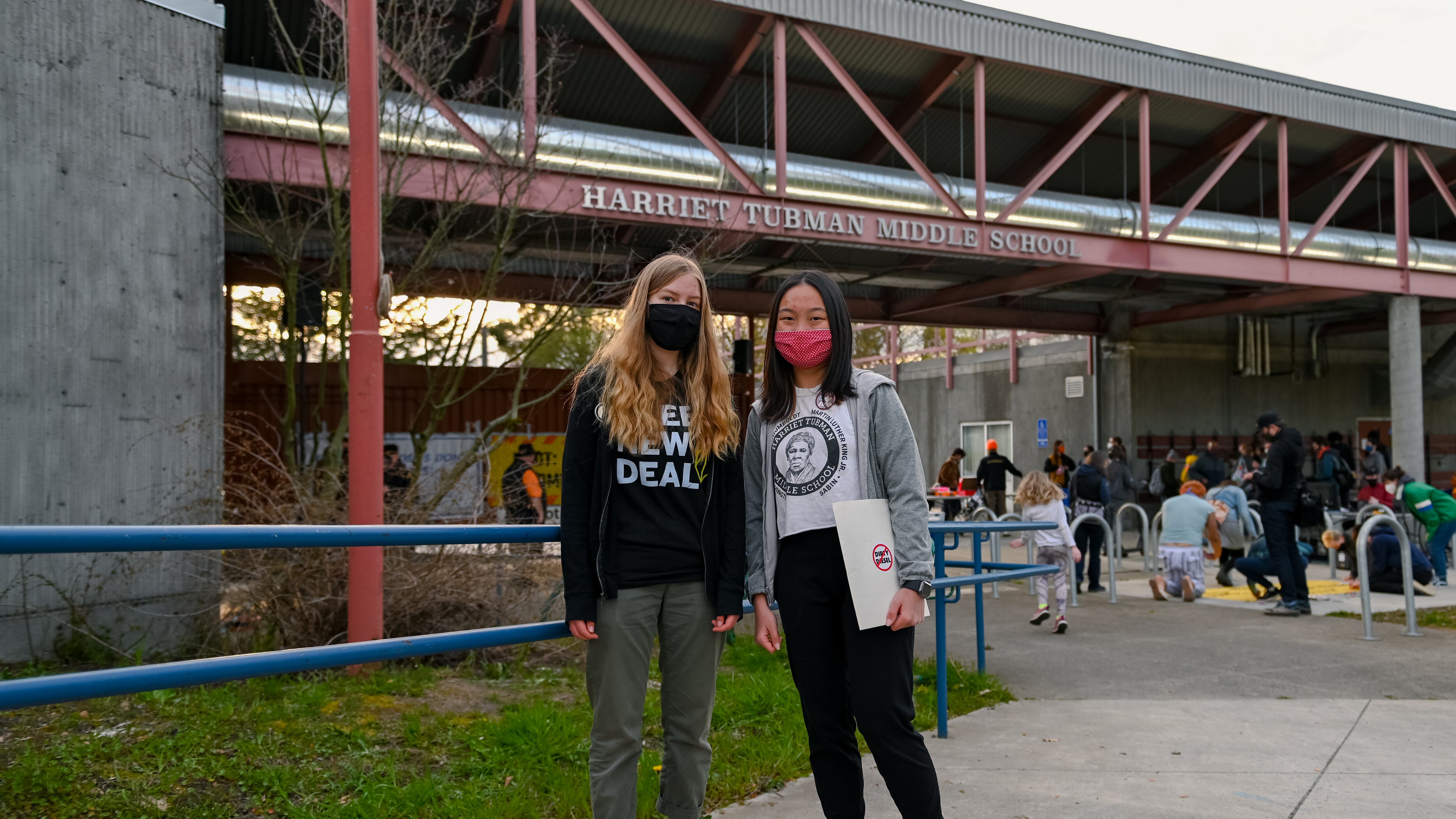GOV. BROWN WANTS TO MOVE TUBMAN MIDDLE SCHOOL: A key sticking point of the contentious Interstate 5 project through the Rose Quarter is the fact that a wider highway could make air quality worse for Harriet Tubman Middle School near the freeway’s shoulder. But a compromise appears to be in the works: Gov. Kate Brown supports moving the school, regardless of what form the highway project takes. Her office wasn’t yet ready to announce a dollar figure for how much she would give Portland Public Schools to move the middle school. “The governor finds the air quality and health impacts to students at Harriet Tubman Middle School to be very concerning, and she supports moving the school—regardless of the Rose Quarter project,” said Brown spokesperson Elizabeth Merah. “The governor is committed to partnering to explore options and what resources might be available at all levels of government.”
WHEELER RECALL FUNDING LAGS: The campaign to recall Mayor Ted Wheeler is not meeting its fundraising goals. As of July 27, Total Recall PDX had raised $76,000, according to the campaign. The average donation was $62. In June, campaign manager Audrey Caines told WW her goal was to raise $150,000 by July 15. The campaign has just nine paid circulators and relies mostly on volunteers. Correlation is high between an initiative campaign being able to hire paid signature collectors and the petition’s success, the National Conference of State Legislatures wrote in a 2012 report. Caines tells WW, “It was an ambitious goal we set to encourage excitement around fundraising, but it isn’t a critical number.” She added that they’re setting a new goal of $115,000 by Sept. 1. In a July 27 message posted to the campaign’s Twitter page, its biggest donor, data processor John Schroeder, urged wealthy Portlanders to donate: “50,000 signatures is an ambitious goal, and unfortunately in our current system, four-figure donations are necessary to achieve it.”
ALL FOUR COUNTY COMMISSIONERS COULD RUN FOR CHAIR: The race to succeed Deborah Kafoury as Multnomah County chair may include all four of her colleagues on the county board of commissioners, she tells WW. Kafoury won’t run again because of term limits. (For her plans, see page 11.) None of the four commissioners—Susheela Jayapal, Sharon Meieran, Jessica Vega Pederson and Lori Stegmann—has officially entered the race. But those who responded to WW’s requests for comment weren’t ready to rule it out, either. “I haven’t ruled anything out, but I am considering my options, and that does include running for chair,” says Stegmann. WW reported last week that Shannon Singleton, a policy adviser to Gov. Kate Brown, is also expected to run.
POLICE CONTRACT MEDIATION BEGINS: The city and the Portland Police Association are slated to enter mediation July 28 for their collective bargaining agreement, according to Oregon’s Employment Relations Board. The process, which lasts for a minimum of 15 days in accordance with state labor laws, happens behind closed doors and out of the public’s view. On June 14, the police union filed an “unresolved issues” list with the state. That list, obtained by WW, lists over 40 topics that remain unresolved between the two parties, including policy relating to body cameras, the city’s proposed discipline guide for officers, and Independent Police Review, which Portlanders voted to dissolve and replace with a new citizen-led board. If the city and the police union can’t come to an agreement during mediation, they reach an “impasse.” From there, the parties can initiate arbitration, where an arbitrator will issue a final, binding decision that sides with the “last best offer” of only one party.

